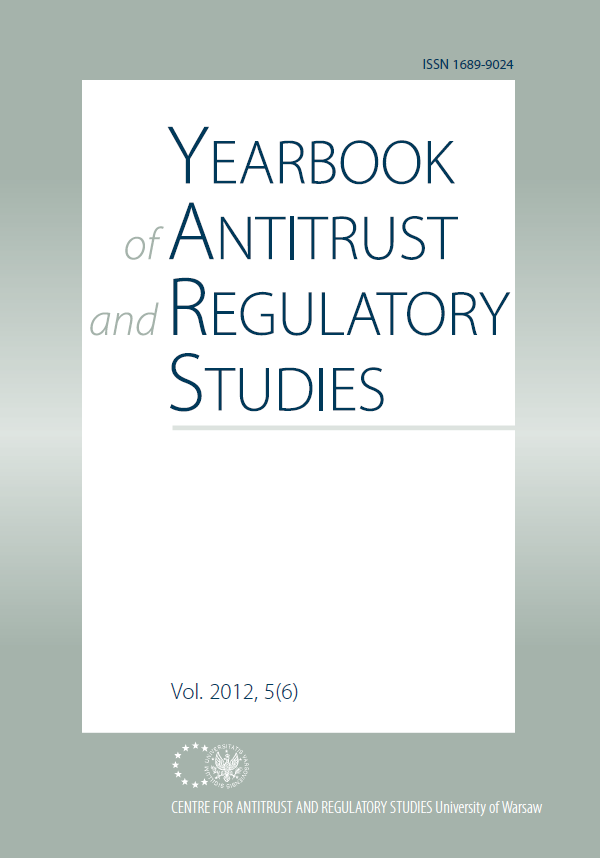Standards of Entrepreneur Rights in Competition Proceedings – a Matter of Administrative or Criminal Law?
Standards of Entrepreneur Rights in Competition Proceedings – a Matter of Administrative or Criminal Law?
Author(s): Małgorzata Król-BogomilskaSubject(s): Business Economy / Management, Commercial Law
Published by: Wydawnictwo Naukowe Wydziału Zarządzania Uniwersytetu Warszawskiego
Keywords: standards of entrepreneur rights; competition proceedings; administrative law; criminal law; fines; judicial cooperation in criminal matters; the criminalisation; hard core cartels
Summary/Abstract: The question of standards of entrepreneur rights in competition proceedings has been for many years considered as one the most controversial issues. Its importance has been increasing considering that the application of antitrust regulations is often concomitant with a wide-ranging interference with the freedom of economic activity. This interference manifests itself in cases concerning both restrictive practices and the control of concentrations. Valuable source of inspiration for a debate on the need to take into account numerous standards of rights in competition proceedings was the dispute over the nature of competition proceedings and fines (the controversy around ‘a criminal law nature’ of competition cases). The jurisprudence of Strasbourg judiciaries explicitly stresses that in the assessment of a case nature due consideration should rather not be given to formal classifications set forth in legal provisions but to the real nature of the case. The ECJ did not share the assumptions adopted by the European Court of Human Rights on the legitimacy of a wide interpretation of the “criminal charge” notion within the meaning of Article 6(1) ECHR. In the present EU jurisprudence on competition law, there have been more and more judgments which deal with standards of rights stemming from the ECHR. In the context of an ever growing severity of penalties, the guarantee function of law has been gaining in importance, and hence the standards to be respected in competition proceedings are of a bigger weight. Major changes were brought by the entry into force, on 1 December 2009, of the Treaty of Lisbon. The implementation of the concept aiming at an even stronger reinforcement of the position of fundamental rights was sealed by granting the EU Charter of Fundamental Rights of 2000 the binding force by including this Charter into the EU primary law and by defining the basis for the EU accession to the ECHR (Article 6 TEU). The introduction of new rules of judicial cooperation in criminal matters may contribute in future to a better dynamic of the criminalization of the most serious violations of competition law in the EU Member States (Article 83 and following of the TFEU).
Journal: Yearbook of Antitrust and Regulatory Studies (YARS)
- Issue Year: 5/2012
- Issue No: 6
- Page Range: 9-33
- Page Count: 25
- Language: English

